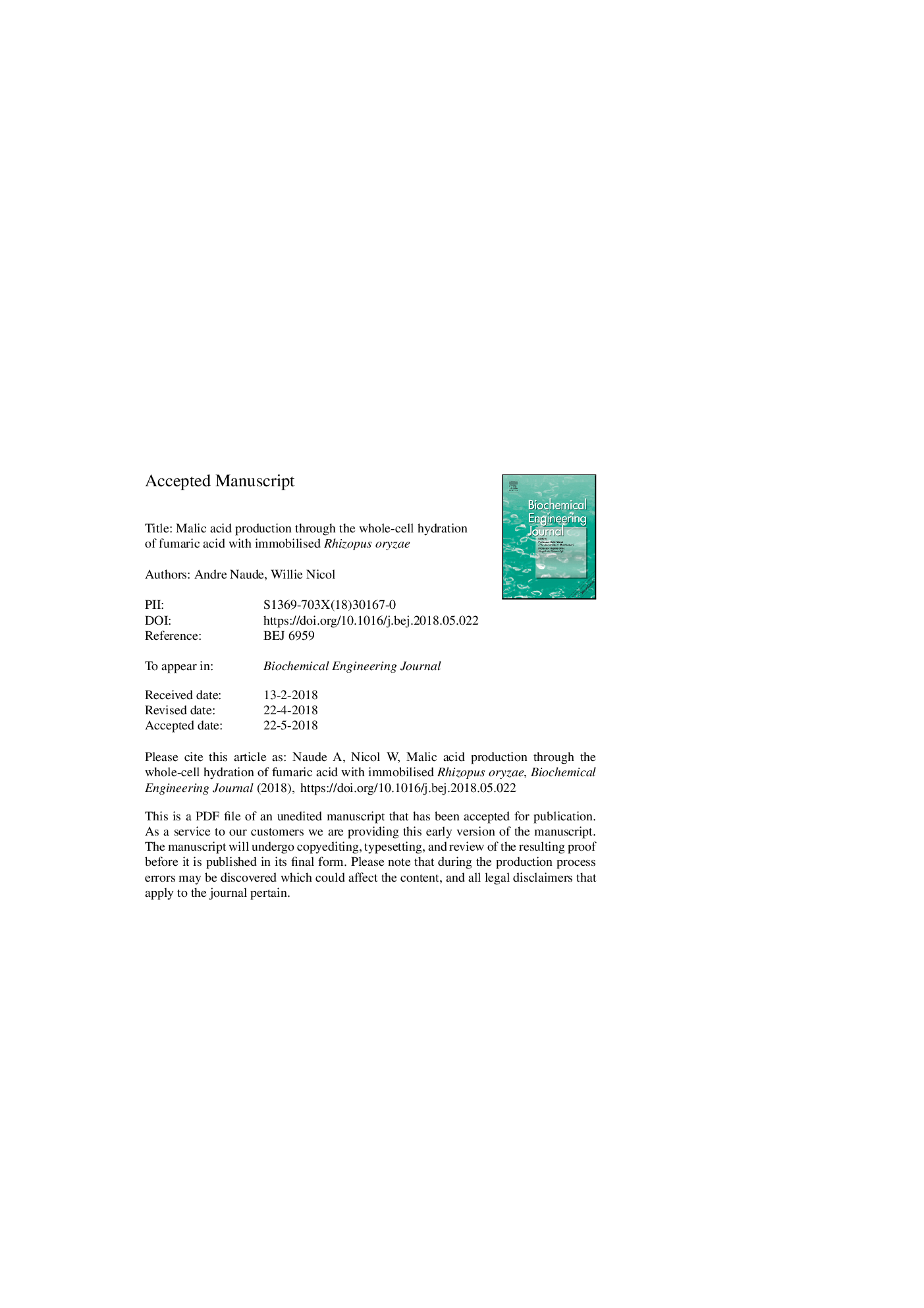| Article ID | Journal | Published Year | Pages | File Type |
|---|---|---|---|---|
| 6483895 | Biochemical Engineering Journal | 2018 | 38 Pages |
Abstract
The production of malic acid from fumaric acid using Rhizopus oryzae as a whole-cell bioconversion process was investigated. Biomass preparation and immobilisation were more straightforward compared with Bravibacterium flavum and Saccharomyces cerevisiae. Anaerobic operation greatly increased the process half-life, which also increased with an increasing sodium concentration in the medium. A model was proposed and validated using repeat-batch and continuous experiments. The results indicated a maximum specific productivity of 3.78â¯gâ¯gâ1â¯hâ1 and a process half-life of 40â¯h, which compares favourably with both B. flavum and S. cerevisiae. No other by-products were formed during the hydration reaction.
Related Topics
Physical Sciences and Engineering
Chemical Engineering
Bioengineering
Authors
Andre Naude, Willie Nicol,
